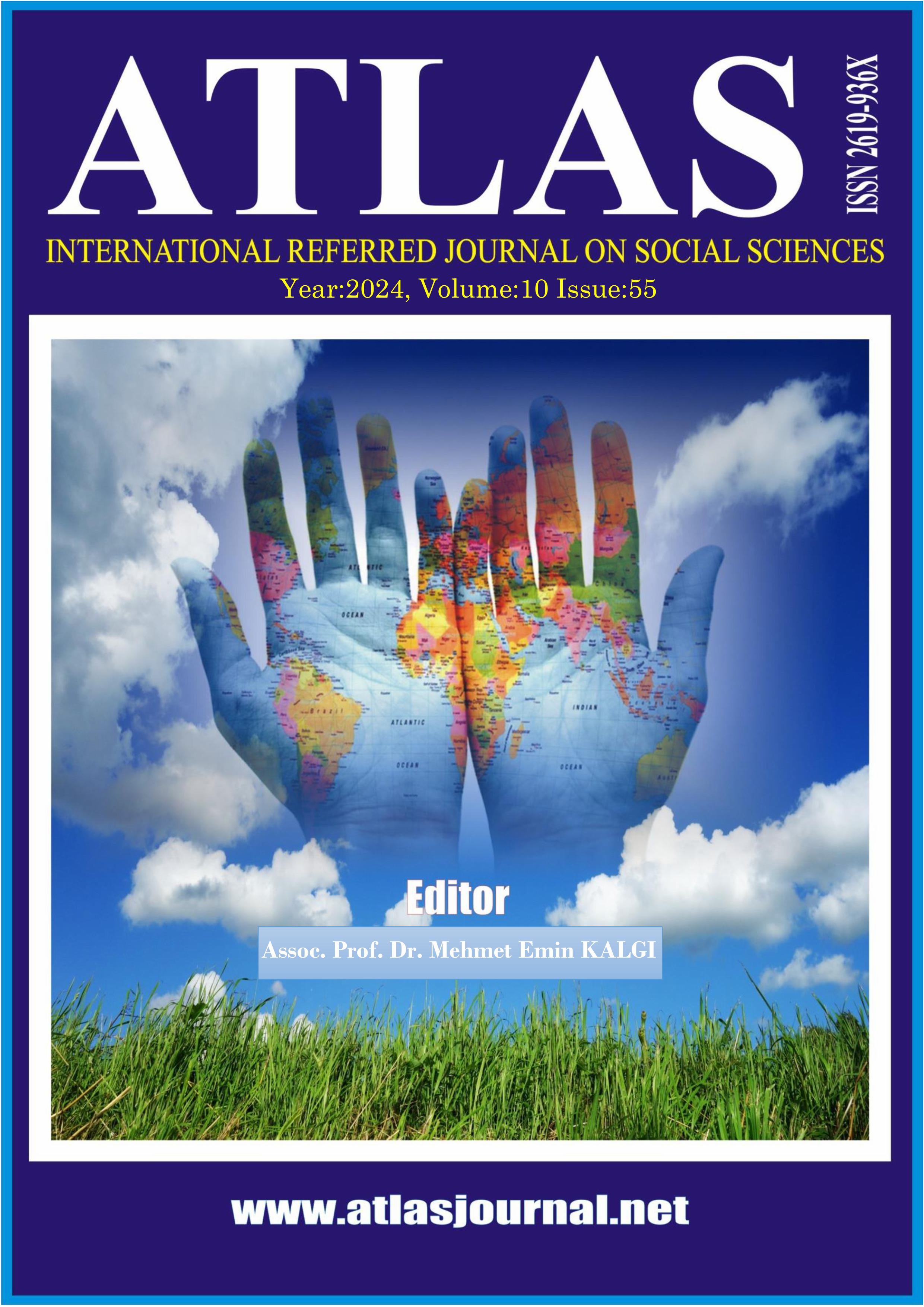Agriculture at the Intersection of History and Technology: From Antiquity to the AI-Enabled Future
DOI:
https://doi.org/10.5281/zenodo.14510224Keywords:
Agriculture 4.0, Mechanization, Digital Agriculture, Neolithic Revolution, Agricultural InnovationAbstract
Agriculture has been a cornerstone of human civilization, evolving to meet the changing needs and challenges of societies. Beyond fulfilling basic nutritional demands, it has played a critical role in driving economic growth, creating employment opportunities, and promoting environmental sustainability. The historical progression of agriculture can be delineated into three major phases of mechanization: the initial reliance on hand tools, the integration of animal-powered technologies, and the mechanization brought about by the Industrial Revolution. Key agricultural innovations throughout history have shaped human survival and societal advancement. Hand tools facilitated early hunting efficiency and the transition to settled life, marking the first agricultural revolution. The second revolution introduced animal-powered tools like the plow, enhancing productivity and fostering the development of structured communities. The Industrial Revolution further transformed agriculture with steam engines and internal combustion technologies, revolutionizing productivity and economic systems globally. In the modern era, digital technologies, including the Internet of Things (IoT), artificial intelligence, and big data analytics, are driving Agriculture 4.0. These innovations enhance productivity, optimize resource utilization, and minimize environmental impacts, contributing to global food security and poverty reduction. This study explores the historical evolution of agriculture, emphasizing how emerging technologies continue to reshape agricultural practices and offering sustainable solutions to address the dynamic challenges of the 21st century.
References
Basso, B., & Antle, J. (2020). Digital agriculture to design sustainable agricultural systems. Nature Sustainability, 3(4), 254–256. https://doi.org/10.1038/s41893-020-0510-0
Diamond, J. (1997). Guns, germs, and steel: The fates of human societies. W.W. Norton & Company.
FAO. (2017). The future of food and agriculture: Trends and challenges. Food and Agriculture Organization of the United Nations.
Finger, R., Swinton, S. M., El Benni, N., & Walter, A. (2019). Precision farming at the nexus of agricultural production and the environment. Annual Review of Resource Economics, 11(1), 313–335. https://doi.org/10.1146/annurev-resource-100518-093929
Godfray, H. C. J., & Garnett, T. (2014). Food security and sustainable intensification. Philosophical Transactions of the Royal Society B: Biological Sciences, 369(1639), 20120273. https://doi.org/10.1098/rstb.2012.0273
Kılıç, S. (2013). İnovasyon anlayışına dayalı ürün geliştirme performansının değerlendirilmesi [Doctoral dissertation, Uludağ Üniversitesi Sosyal Bilimler Enstitüsü].
Klerkx, L., Aarts, N., & Leeuwis, C. (2010). Adaptive management in agricultural innovation systems: The interactions between innovation networks and their environment. Agricultural Systems, 103(6), 390–400. https://doi.org/10.1016/j.agsy.2010.04.005
Klerkx, L., & Leeuwis, C. (2009). Establishment and embedding of innovation brokers at different innovation system levels: Insights from the Dutch agricultural sector. Technological Forecasting and Social Change, 76(6), 849–860. https://doi.org/10.1016/j.techfore.2008.10.001
Li, S., & Wang, C. (2019). Adoption of sustainable agricultural practices: Role of social capital and innovation characteristics. Sustainability, 11(6), 1722. https://doi.org/10.3390/su11061722
Liakos, K. G., Busato, P., Moshou, D., Pearson, S., & Bochtis, D. (2018). Machine learning in agriculture: A review. Sensors, 18(8), 2674. https://doi.org/10.3390/s18082674
Lobell, D. B., Schlenker, W., & Costa-Roberts, J. (2011). Climate trends and global crop production since 1980. Science, 333(6042), 616–620. https://doi.org/10.1126/science.1204531
Mazoyer, M., & Roudart, L. (2006). A history of world agriculture: From the Neolithic age to the current crisis. Monthly Review Press.
Pretty, J. (2008). Agricultural sustainability: Concepts, principles, and evidence. Philosophical Transactions of the Royal Society B, 363(1491), 447–465. https://doi.org/10.1098/rstb.2007.2163
Rose, D. C., Chilvers, J., & Sutherland, W. J. (2021). Decision support tools for agriculture: Towards effective design and delivery. Agricultural Systems, 187, 103027. https://doi.org/10.1016/j.agsy.2020.103027
Rogers, E. M. (2003). Diffusion of innovations (5th ed.). Free Press.
Sabancı, A., & Özgüven, F. (1990). Tarımsal mekanizasyon işletmeciliği. ÇÜ Ziraat Fakültesi Ders Kitabı. https://tarimmakinalari.cu.edu.tr
Schumpeter, J. A. (1934). The theory of economic development: An inquiry into profits, capital, credit, interest, and the business cycle. Harvard University Press.
Tektaş, A., & Tosun, E. Ö. (2016). Yiyecek ve içecek endüstrisinde uluslararası performans kıyaslaması [International performance benchmarking in the food and beverage industry].
Tübitak Bilim Genç. (2021). 5000 yıllık kafatasında veba izleri. https://bilimgenc.tubitak.gov.tr/makale/5000-yillik-kafatasinda-veba-izleri
Tzounis, A., Katsoulas, N., Bartzanas, T., & Kittas, C. (2017). Internet of Things in agriculture, recent advances, and future challenges. Biosystems Engineering, 164, 31–48. https://doi.org/10.1016/j.biosystemseng.2017.09.007
Wolfert, S., Ge, L., Verdouw, C., & Bogaardt, M.-J. (2017). Big data in smart farming: A review. Agricultural Systems, 153, 69–80. https://doi.org/10.1016/j.agsy.2017.01.023
Yurtoğlu, N. (2017). Cumhuriyet dönemi ziratte makineleşme sürecinde Türkiye Zirai Donatım Kurumu (TZDK) yeri ve önemi (1943-1960). Tarih Okulu Dergisi, 10(29), 277–312.
Downloads
Published
How to Cite
Issue
Section
License
Copyright (c) 2024 Atlas Journal

This work is licensed under a Creative Commons Attribution-NonCommercial 4.0 International License.


